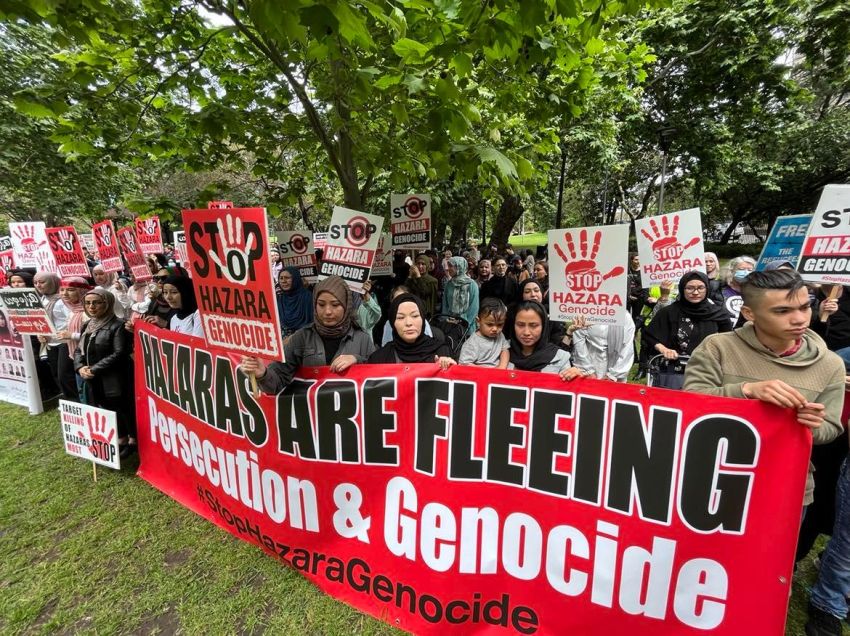
People gathered in 91 major cities across Europe, North America, Asia and Australia to call an end to the genocide against the Hazara people in Afghanistan on October 8.
This wave of the movement developed in response to an attack on Hazara school children in Kabul on September 30. More than 50 students, mostly girls, were killed and more than 80 others were wounded.
The bomb went off as the girls were sitting for a practice exam in preparation for entering university.
The vigils are the start of a global movement calling for international solidarity with the Hazara people — an ethnic and religious minority group with a long history of persecution.
A Twitter campaign — #StopHazaraGenocide — started on October 3, has surpassed six million tweets.
Up to 1000 Afghans, particularly Hazaras, gathered at Belmore Park in Sydney where Chris Bowen, Minister for Climate Change and Energy, spoke.
Hazara community speakers, including Nazanin Sharifi, spoke about the systematic genocide against the Hazara people and about why the Australian government needed to help Hazaras find refuge here. Two councillors from Cumberland also spoke.
Dr Gregory Stanton, founding president of Genocide Watch, said “this gradual genocide” goes back to late 1890s. Successive Afghan governments have either perpetuated this genocide or failed to protect the Hazaras.
The Australian organisers of the vigils are calling on the federal government to “formally recognise and condemn” the escalation of violence against the Hazaras.
They are seeking a roundtable meeting with government representatives to be able to relay their grave concerns about the plight of their people.
They also want the government to commit to 20,000 additional emergency humanitarian intake from Afghanistan, focusing on high-risk groups.
Stanton has argued that “special consideration” be given to allow Hazaras to find refuge in the West because they have “a well founded fear of persecution” on “the basis of their political religious and ethnic identity”.
An investigation by the United Nations Human Rights Council should also be conducted, according to Stanton, to bring those responsible to justice.
Human Rights Watch said that since the Taliban’s violent return to power in mid-August last year, ISIS and its affiliates have claimed responsibility for 13 attacks against the Hazaras. These attacks, which mostly targeted schools and mosques, have killed and wounded at least 700 people.
[Amir Haidari, an Afghan-Australian, is a board member with Baba Mazari Foundation Australia. The views are his own.]